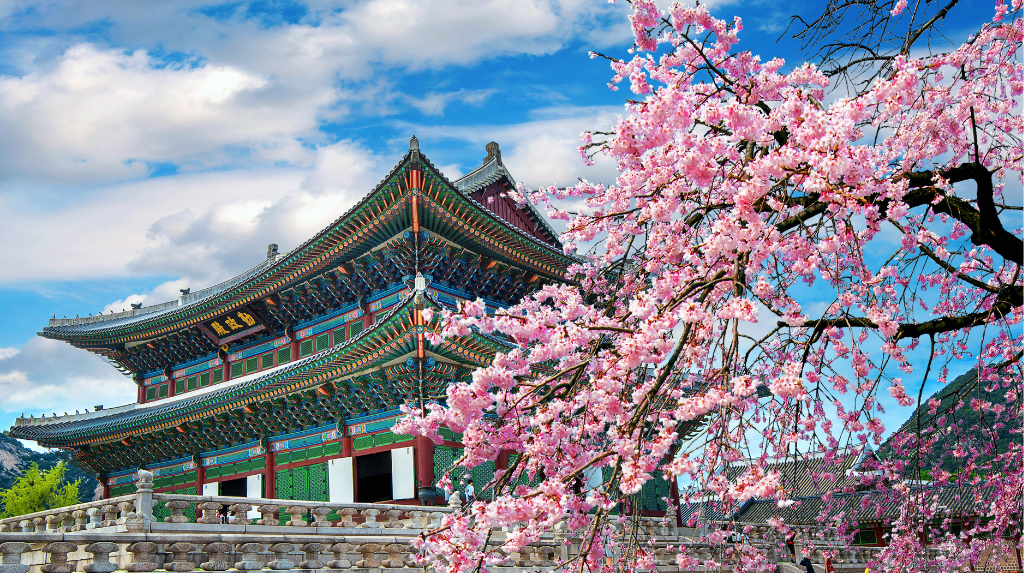Understanding the visa application process is essential for Nigerians planning to explore the dynamic and vibrant life of South Korea. This comprehensive guide provides an in-depth and easy-to-understand overview of obtaining a South Korean visa, ensuring Nigerian citizens are well-prepared for their journey.
South Korea Visa Types for Nigerian Citizens
Tourist Visa (C-3)
The Tourist Visa (C-3) is suitable for Nigerian citizens wishing to visit South Korea for tourism. This visa is generally short-term, allowing visitors to explore South Korea’s cultural landmarks, vibrant cities, and picturesque landscapes.
Business Visa (C-2)
The Business Visa (C-2) is designed for Nigerian professionals who plan to engage in business-related activities in South Korea, such as attending meetings, conferences, or other corporate events.
Student Visa (D-2)
The Student Visa (D-2) is intended for Nigerian students who have been accepted into educational institutions in South Korea. This visa facilitates long-term stay for the duration of the academic program.
Work Visa (E-Series)
The Work Visa (E-series) encompasses various subcategories and is tailored for Nigerian citizens who have secured employment in South Korea. This visa permits them to live and work in South Korea, contributing to different sectors of the Korean economy.
Cultural Exchange Visa (D-1)
The Cultural Exchange Visa (D-1) is aimed at Nigerians involved in cultural exchanges, artistic endeavours, or research activities in South Korea. This visa fosters cultural and academic exchanges between Nigeria and South Korea.
Family Visit Visa (F-1)
For Nigerians with family members residing in South Korea, the Family Visit Visa (F-1) allows them to visit and spend time with their loved ones. This visa is crucial for maintaining family ties across borders.
Transit Visa
Nigerians travelling through South Korea en route to another destination may require a Transit Visa. This visa is essential for those who need to make a stopover in South Korea during their journey.
Visa Application Process
Selecting the Right Visa Type
Identify the appropriate visa category that matches the purpose of your travel. Each category has specific requirements and conditions.
Gathering Required Documents
Essential documents include a valid Nigerian passport, proof of sufficient funds, a travel itinerary, and relevant supporting documents like invitation letters, admission letters, or employment contracts, depending on the visa type.
Application Form Submission
Visa applications are generally submitted at the South Korean Embassy or Consulate in Nigeria. The application form should be filled out accurately and accompanied by all required documents.
Visa Fee Payment
A non-refundable visa application fee is applicable, varying based on the visa type. The fee must be paid upon application submission.
Interview and Additional Documentation
Some applicants may be required to attend an interview at the embassy or consulate. Additional documents may also be requested to support the visa application.
Processing Time
Visa processing times vary depending on the type of visa and the applicant’s specific circumstances. It is advisable to apply well in advance of the planned travel date.
Visa Approval and Collection
Once the visa application is processed and approved, applicants will be notified and can collect their visa. Ensure to check the visa details for accuracy upon receipt.
Tips for a Successful Visa Application
- Apply Early: Start the application process well ahead of your travel date to accommodate processing times.
- Accuracy and Completeness: Ensure your application is complete and accurate, with all necessary information provided.
- Financial Proof: Demonstrate sufficient financial means to support your stay in South Korea.
- Follow Visa Guidelines: Adhere to all specific requirements and instructions for your chosen visa category.
Common Reasons for Visa Denial
- Incomplete applications or missing documentation.
- Insufficient proof of financial means.
- Lack of clear travel purpose or itinerary.
- Past immigration or legal issues.
Post-Arrival in South Korea
Upon arrival in South Korea, adhere to the terms and conditions of your visa. Overstaying or engaging in unauthorised activities can lead to legal issues and affect future travel.
In conclusion, applying for a South Korean visa as a Nigerian citizen involves understanding the various visa types, preparing the necessary documentation, and following the application process diligently. With proper planning and adherence to the guidelines, Nigerians can look forward to a successful and enjoyable visit to South Korea.
Note: Always check the latest information and guidelines from the South Korean Embassy, as visa policies and requirements can change.
Do you need assistance with your South Korea visa application?
Contact our team of skilled immigration lawyers to discuss your visa and immigration needs.Call us on +234 812 5505 986 or WhatsApp us at +234 818 1547 085 for immediate assistance with your situation. We are available to assist you in person, over the phone, or online.





